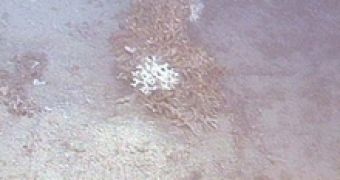Imagine you are walking down the beach with your son, and at some point he asks you "Daddy, can I go and play with water?", to which you will reply: "No son, the water will burn your body". Ok, that was an exaggeration (after all carbonic acid is not that powerful), but the threat of ocean acidity is real.
The Royal Society in the U.K has issued a report concerning the world's oceans.
"If CO2 from human activities continues to rise, the oceans will become so acidic by 2100 it could threaten marine life in ways we can't anticipate," commented Dr. Ken Caldeira, co-author of the report and a newly appointed staff scientist at the Carnegie Institution's Department of Global Ecology in Stanford, California.
Many scientists view the oceans as "magnets" for greenhouse gas CO2. This is very important because it slows down global warming. Marine plants soak up CO2 as they breathe it in and convert it to food during photosynthesis. Organisms also use it to make their skeletons and shells, which eventually form sediments.
When CO2 gas dissolves into the ocean it produces carbonic acid, which is corrosive to shells of marine organisms and can interfere with the oxygen supply.
If current trends continue, the scientists believe the acidic water could interrupt the process of shell and coral formation and adversely affect other organisms dependent upon corals and shellfish. The acidity could also negatively impact other calcifying organisms, such as phytoplankton and zooplankton, some of the most important players at the base of the planet's food chain.

 14 DAY TRIAL //
14 DAY TRIAL //